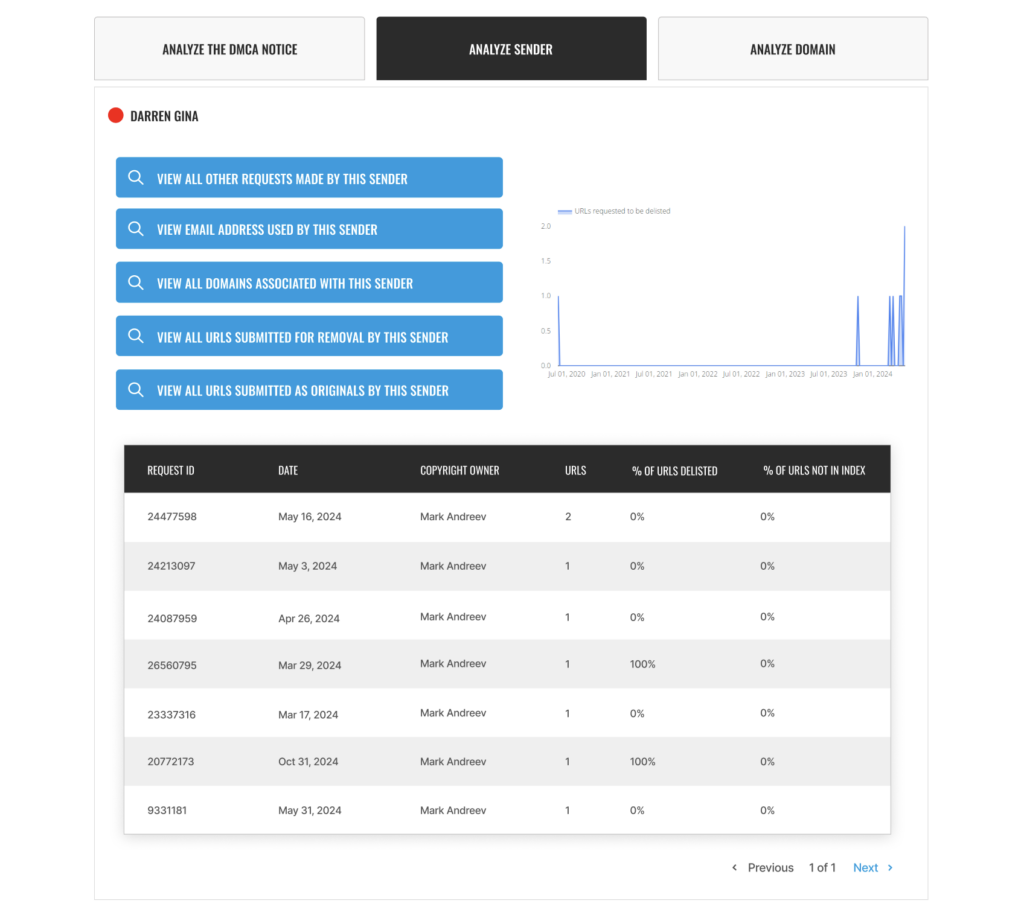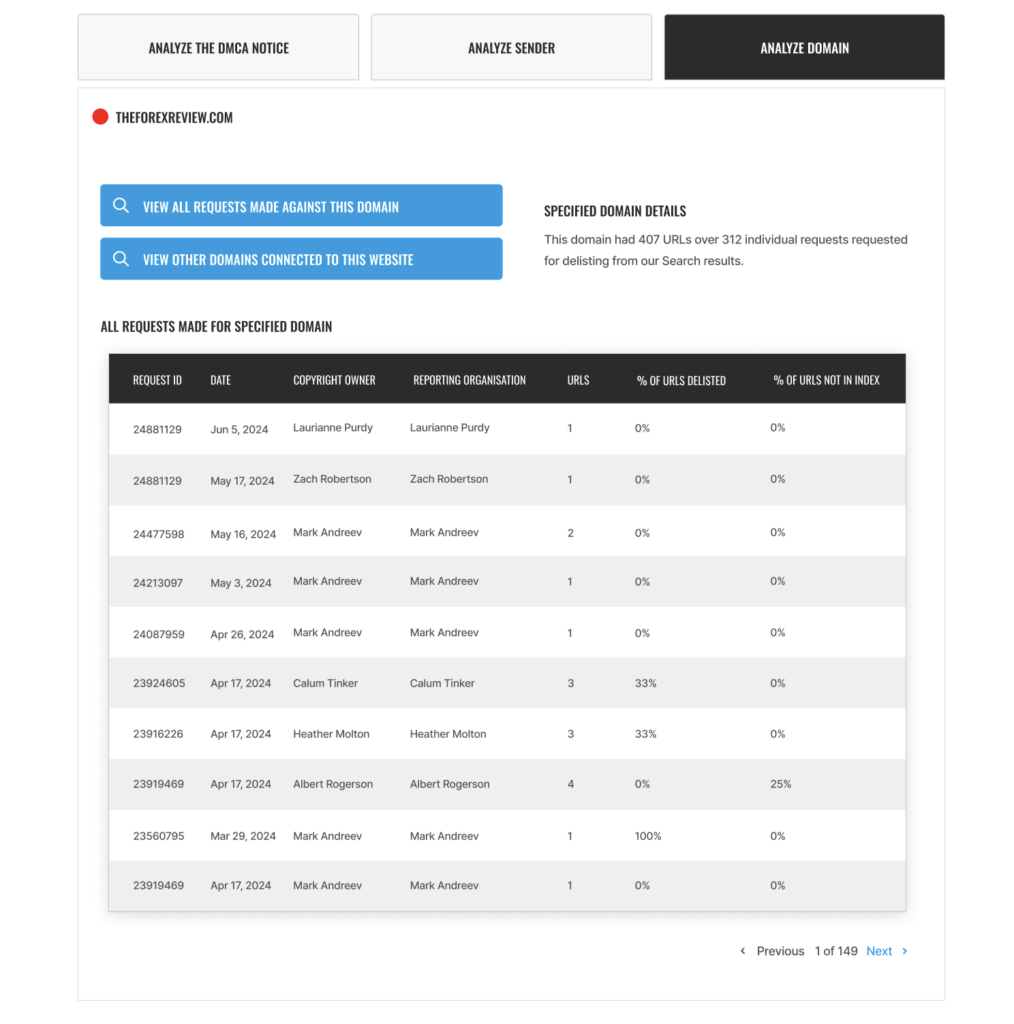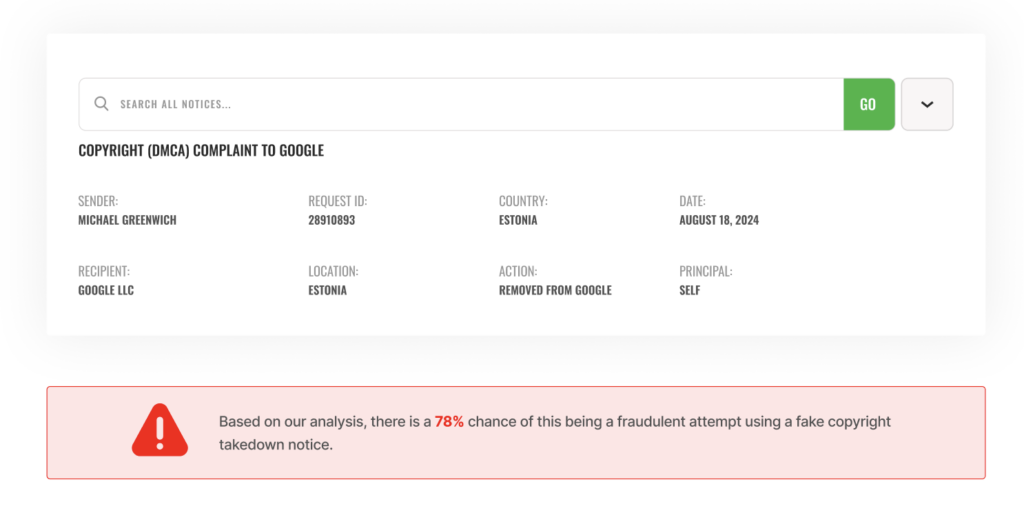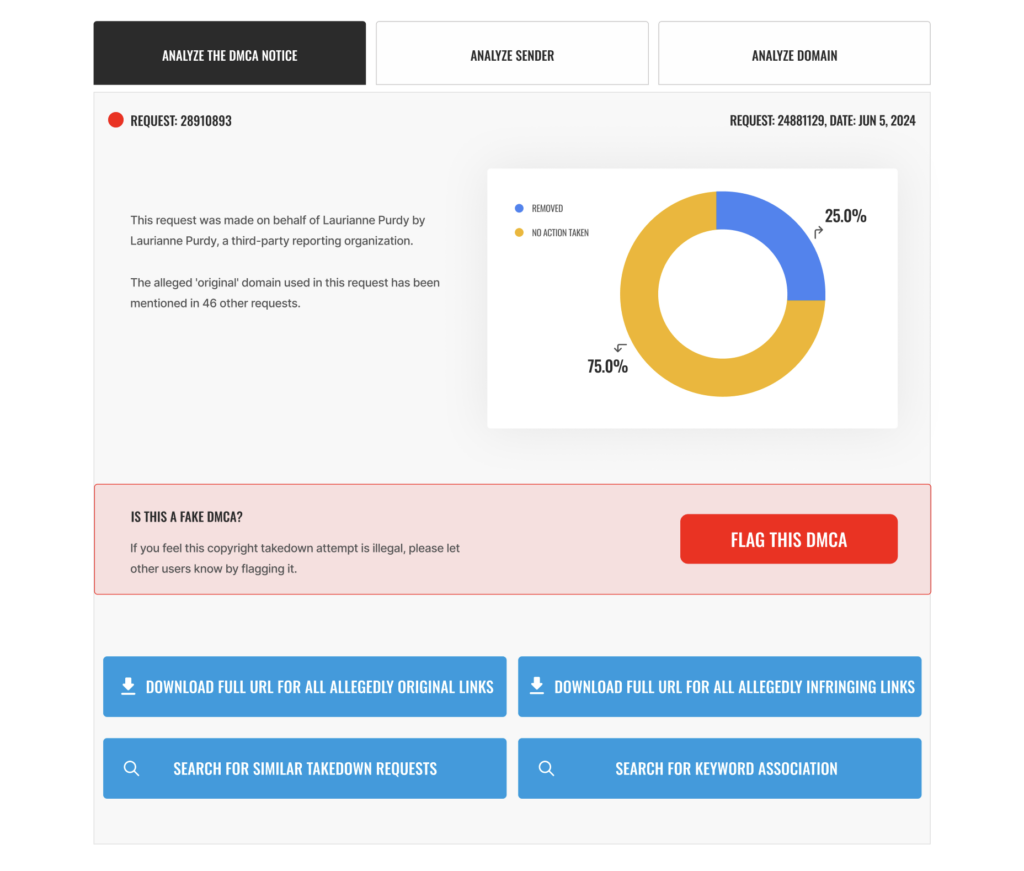Originally Syndicated on September 5, 2024 @ 6:42 am
What Happened?
Mike Sims, a prominent leader at OmegaPro, has come under the spotlight for his efforts to obscure his problematic past and silence critics who have raised questions about the company’s legitimacy. OmegaPro, which has been marketed as a financial and trading platform, has faced accusations of operating a high-risk investment scheme, and Sims himself has been implicated in misleading investors about his legal troubles.
According to a detailed investigation by BehindMLM, Sims lied about his involvement in fraud charges brought by the Commodity Futures Trading Commission (CFTC). He publicly denied these accusations, claiming his record was clean and dismissing allegations of any wrongdoing. However, the evidence suggests otherwise, painting a picture of deliberate deceit, aimed at maintaining a facade of credibility while deflecting legitimate scrutiny. The allegations stem from Sims’ prior involvement in financial misconduct, which raises serious concerns about his integrity and transparency as a leader of OmegaPro.
Additionally, Sims and OmegaPro have reportedly used aggressive tactics to censor damaging information, including threatening legal action against whistleblowers and media outlets. This strategy is consistent with an effort to control the narrative and prevent potential investors from learning about the company’s questionable practices. Such actions not only create an environment of fear among those attempting to expose the truth but also prevent investors from making informed decisions.

The concerted effort to suppress critical information and the outright lies concerning the CFTC charges are indicative of a larger pattern of manipulation. Instead of addressing the allegations directly and offering transparency, Sims appears to be leveraging misinformation to shield OmegaPro from reputational damage. This approach serves to protect his interests at the expense of investors, many of whom may be unaware of the risks they are taking due to the misleading portrayal of OmegaPro’s operations.
The revelations about Mike Sims’ actions serve as a stark reminder of the importance of due diligence when evaluating investment opportunities, particularly those involving high returns and promises that seem too good to be true.

Analyzing the Fake Copyright Notice(s)
Our team collects and analyses fraudulent copyright takedown requests, legal complaints, and other efforts to remove critical information from the internet. Through our investigative reporting, we examine the prevalence and operation of an organized censorship industry, predominantly funded by criminal entities, oligarchs, and disreputable businesses or individuals. Our findings allow internet users to gain insight into these censorship schemes’ sources, methods, and underlying objectives.
List of Fake Copyright Notices for Mike Sims of OmegaPro
| Number of Fake DMCA Notice(s) | 1 |
| Lumen Database Notice(s) | https://lumendatabase.org/notices/43862178 |
| Sender(s) | Winwithsashin |
| Date(s) | Aug 16, 2024 |
| Fake Link(s) Used by Scammers | https://behindmlm.com/companies/omegapro/mike-sims-lies-about-cftc-fraud-charges-deceives-victims/ |
| Original Link(s) Targeted | https://behindmlm.com/companies/omegapro/mike-sims-lies-about-cftc-fraud-charges-deceives-victims/ |
Evidence and Screenshots

How do we investigate fake DMCA notices?
To accomplish this, we utilize the OSINT Tool provided by FakeDMCA.com and the Lumen API for Researchers, courtesy of the Lumen Database.
FakeDMCA.com is the work of an independent team of research students and cybersecurity professionals, developed under Project UnCensor. Their OSINT Tool, designed to uncover and analyze takedown notices, represents a significant step forward in combating these abusive practices. It has become a valuable resource, increasingly relied upon by journalists and law enforcement agencies across the United States.
Lumen, on the other hand, is an independent research initiative dedicated to studying takedown notices and other legal demands related to online content removal. The project, which operates under the Berkman Klein Center for Internet & Society at Harvard University, plays a crucial role in tracking and understanding the broader implications of such requests.
What was Mike Sims of OmegaPro trying to hide?
Mike Sims is a leading figure associated with OmegaPro, a company that claims to offer lucrative opportunities in financial trading and investment. OmegaPro has positioned itself as an innovative trading platform that provides services like forex trading and cryptocurrency investment, targeting individuals looking to grow their wealth. However, the company and Sims have faced mounting scrutiny and criticism over the years, with allegations of being involved in deceptive practices.
According to a detailed investigation by BehindMLM, Mike Sims has a controversial history involving fraud charges brought by the Commodity Futures Trading Commission (CFTC). He is accused of actively deceiving investors about his record, attempting to distance himself from previous legal troubles, and portraying himself as trustworthy. This alleged deception is aimed at preventing investors from becoming aware of the fraud charges that have been levied against him in the past, creating a false impression of credibility and reliability.
The adverse news and complaints that Sims appears to be hiding include his misrepresentation of his background and involvement in prior scams. Specifically, he has been accused of lying about the CFTC’s charges, dismissing these allegations publicly, and painting an inaccurate picture of his compliance with financial regulations. This misrepresentation has raised concerns about the legitimacy of OmegaPro’s operations, as the leadership’s transparency is directly tied to investors’ confidence.
Moreover, there are numerous negative reviews and complaints from people who claim to have lost money after investing in OmegaPro. These complaints suggest that the platform operates more like a high-risk investment scheme, often making unrealistic promises about high returns with little regard for the potential losses faced by investors. The lack of transparency and Sims’ active role in hiding his past has led critics to question the ethics and safety of the company’s investment opportunities.
In addition to these allegations, there have been reports of OmegaPro and Sims attempting to censor negative information by discrediting critics or using legal threats against whistleblowers and media outlets that expose their practices. Such actions suggest a concerted effort to control the narrative around OmegaPro, ensuring that negative publicity and adverse news are minimized or buried, thereby keeping potential investors unaware of the risks associated with their investments.
This pattern of misinformation and censorship highlights a concerning attempt by Mike Sims to manipulate public perception, avoiding accountability while continuing to market OmegaPro as a legitimate opportunity, despite the serious allegations and evidence to the contrary.
Only Mike Sims of OmegaPro benefits from this crime.

Since the fake copyright takedown notices were designed to remove negative content for Mike Sims of OmegaPro from Google, we assume Mike Sims of OmegaPro or someone associated with Mike Sims of OmegaPro is behind this scam. It is often a fly-by-night Online Reputation agency working on behalf of Mike Sims of OmegaPro. In this case, Mike Sims of OmegaPro, at best, will be an “accomplice” or an “accessory” to the crime. The specific laws may vary depending on the jurisdiction. Still, the legal principle generally holds that if you actively participate in planning, encouraging, or facilitating a crime, you can be charged with it, even if you did not personally commit it.
How do we counteract this malpractice?
Once we ascertain the involvement of Mike Sims of OmegaPro (or actors working on behalf of Mike Sims of OmegaPro), we will inform Mike Sims of OmegaPro of our findings via Electronic Mail.
Our preliminary assessment suggests that Mike Sims of OmegaPro may have engaged a third-party reputation management agency or expert, which, either independently or under direct authorization from Mike Sims of OmegaPro, initiated efforts to remove adverse online content, including potentially fraudulent DMCA takedown requests. We will extend an opportunity to Mike Sims of OmegaPro to provide details regarding their communications with the agency or expert, as well as the identification of the individual(s) responsible for executing these false DMCA notices.
Failure to respond in a timely manner will necessitate a reassessment of our initial assumptions. In such an event, we will be compelled to take appropriate legal action to rectify the unlawful conduct and take the following steps –
- Inform Google about the fraud committed against them.
- Inform the victims of the fake DMCA about their websites.
- Inform relevant law enforcement agencies
- File counter-notices on Google to reinstate the ‘removed’ content
- Publish copies of the ‘removed’ content on our network of 50+ websites
By investigating the fake DMCA takedown attempts, we hope to shed light on the reputation management industry, revealing how Mike Sims of OmegaPro and companies like it may use spurious copyright claims and fake legal notices to remove and obscure articles linking them to allegations of fraud, tax avoidance, corruption, and drug trafficking…
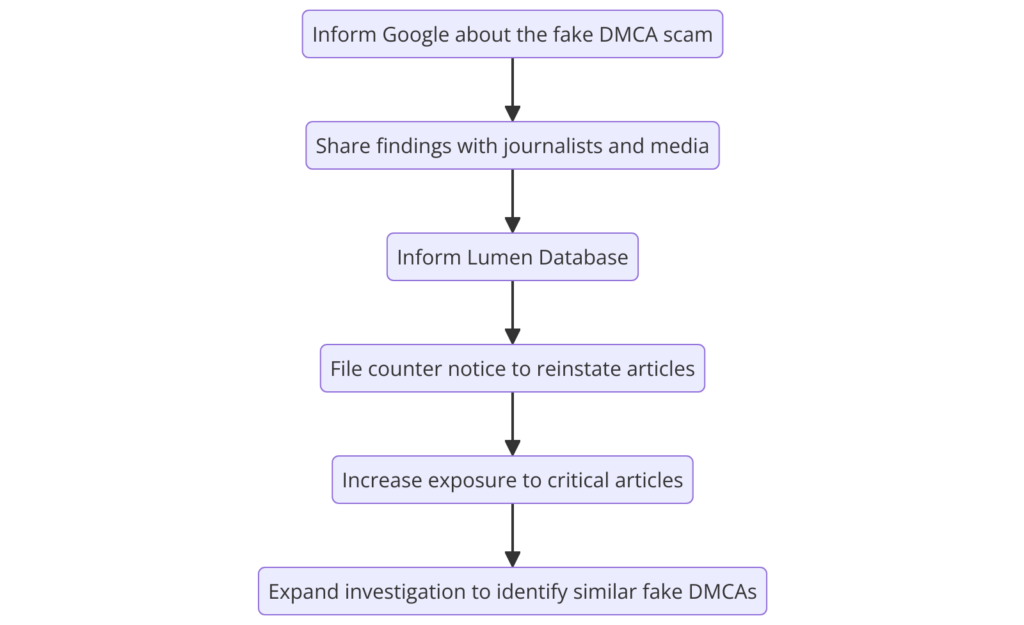
Since Mike Sims of OmegaPro made such efforts to hide something online, it seems fit to ensure that this article and our original review of Mike Sims of OmegaPro, including but not limited to user contributions, remain a permanent record for anyone interested in Mike Sims of OmegaPro.
A case perfect for the Streisand effect…
Potential Consequences for Mike Sims of OmegaPro
Under Florida Statute 831.01, the crime of Forgery is committed when a person falsifies, alters, counterfeits, or forges a document that carries “legal efficacy” with the intent to injure or defraud another person or entity.
Forging a document is considered a white-collar crime. It involves altering, changing, or modifying a document to deceive another person. It can also include passing along copies of documents that are known to be false. In many states in the US, falsifying a document is a crime punishable as a felony.

Additionally, under most laws, “fraud on the court” is where “a party has sentiently set in motion some unconscionable scheme calculated to interfere with the judicial system’s ability impartially to adjudicate a matter by improperly influencing the trier of fact or unfairly hampering the presentation of the opposing party’s claim or defense.” Cox v. Burke, 706 So. 2d 43, 46 (Fla. 5th DCA 1998) (quoting Aoude v. Mobil Oil Corp., 892 F.2d 1115, 1118 (1st Cir. 1989)).





